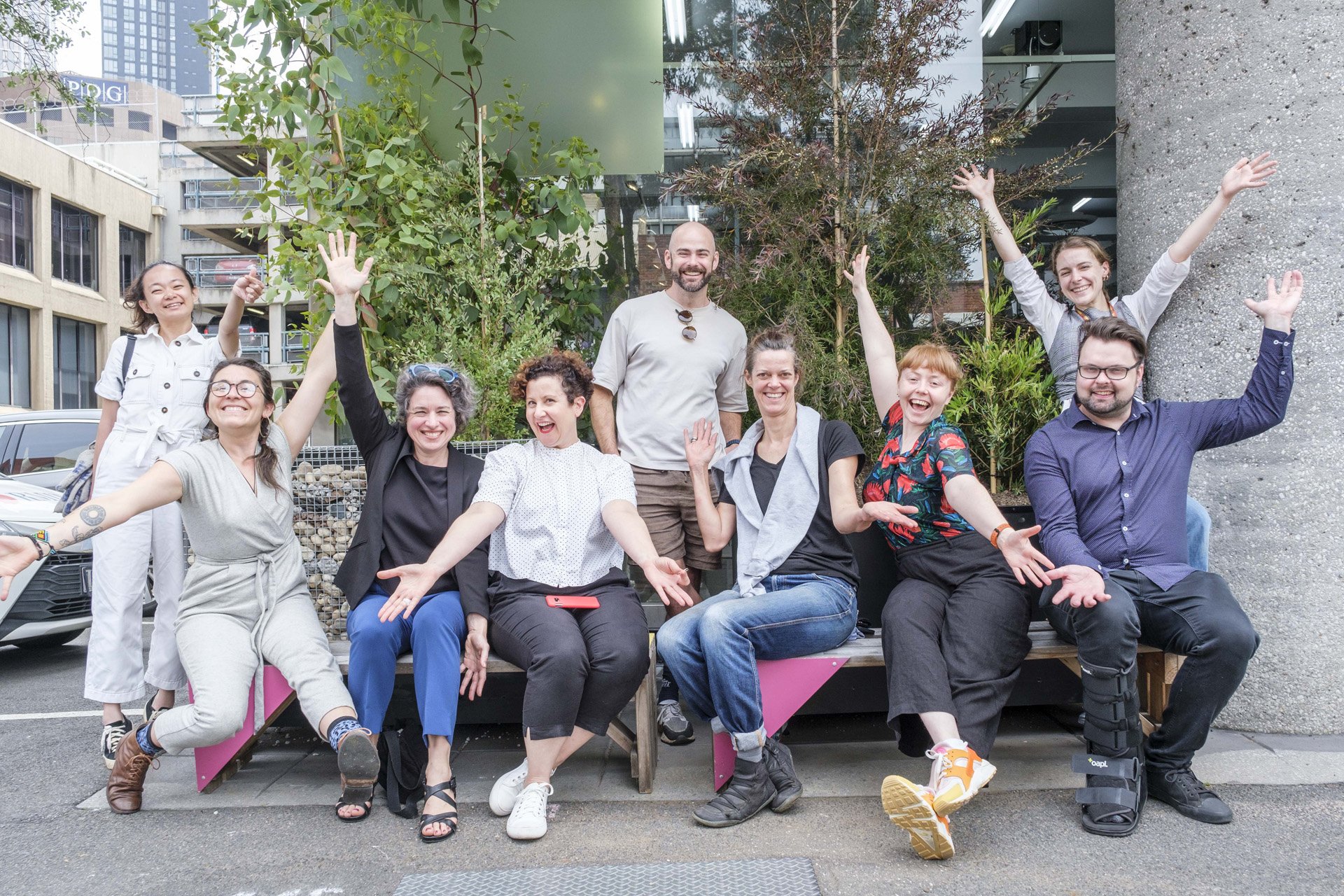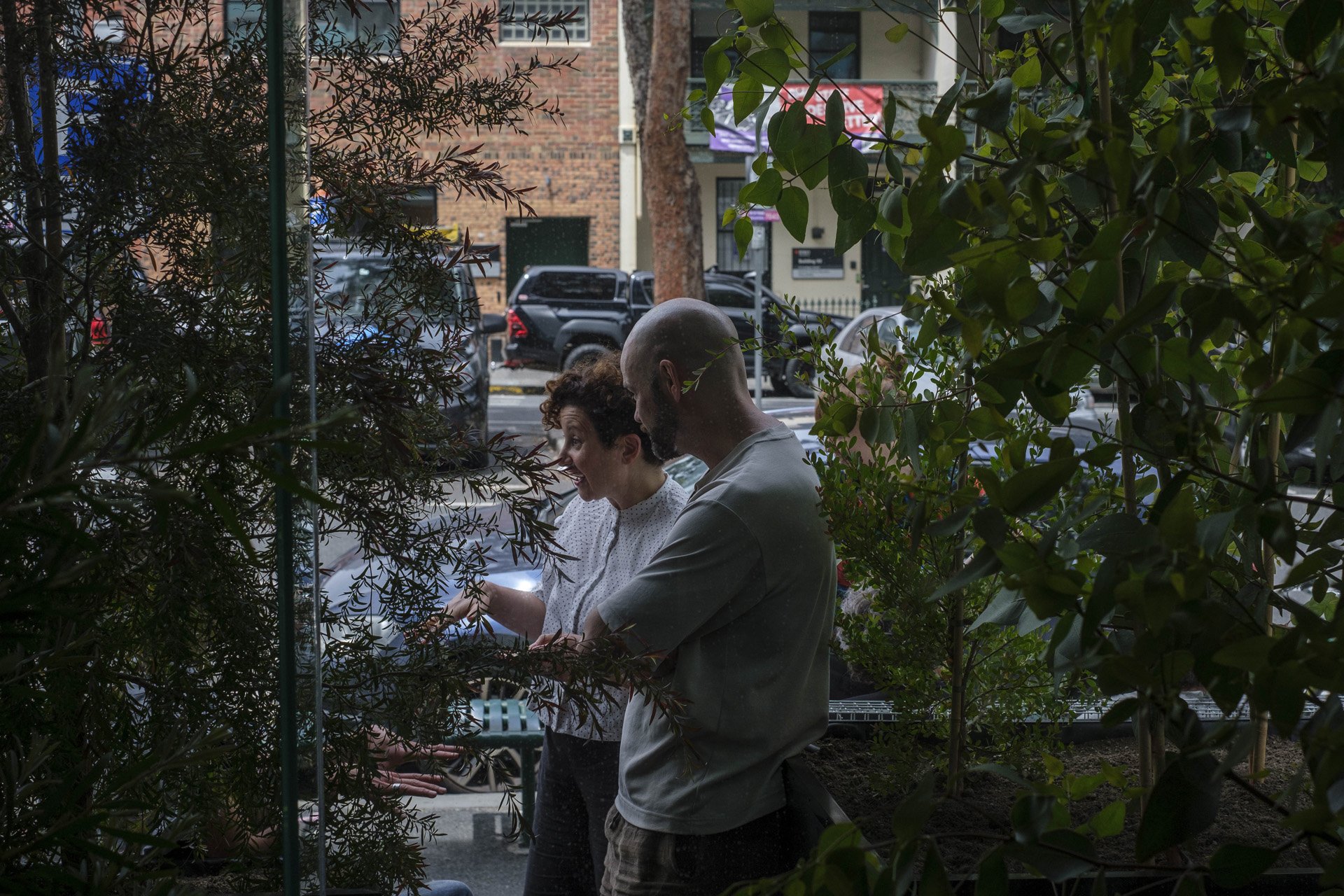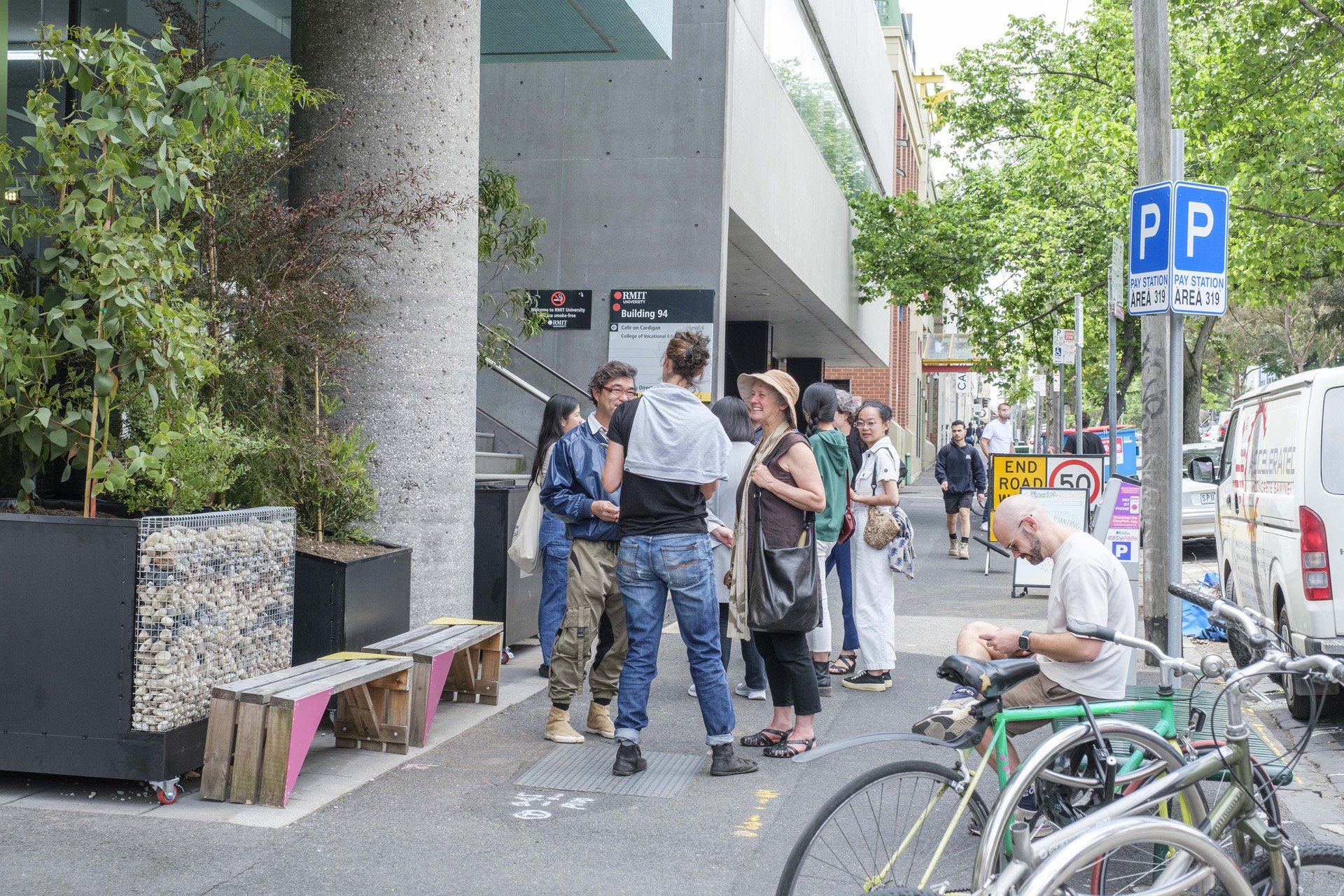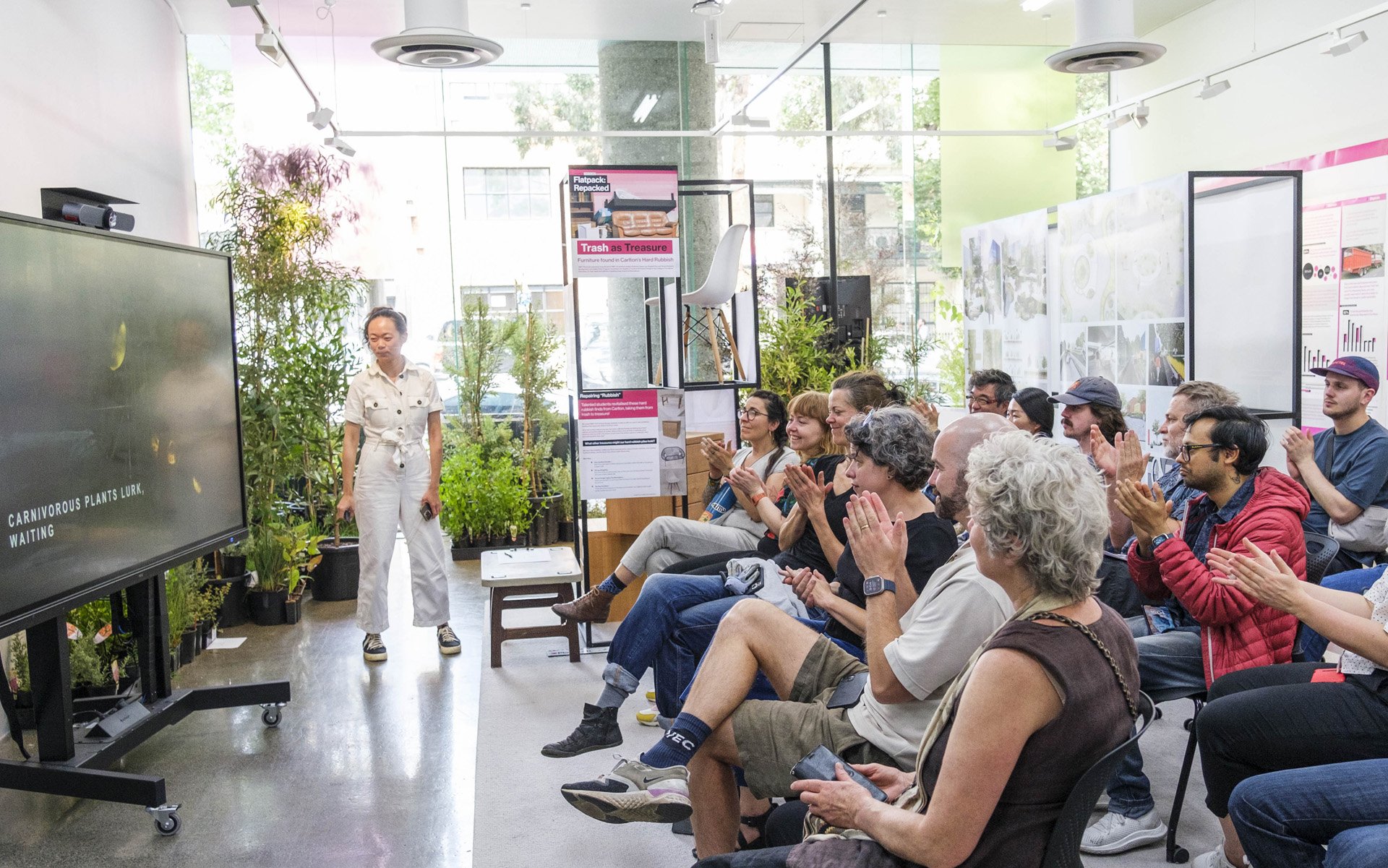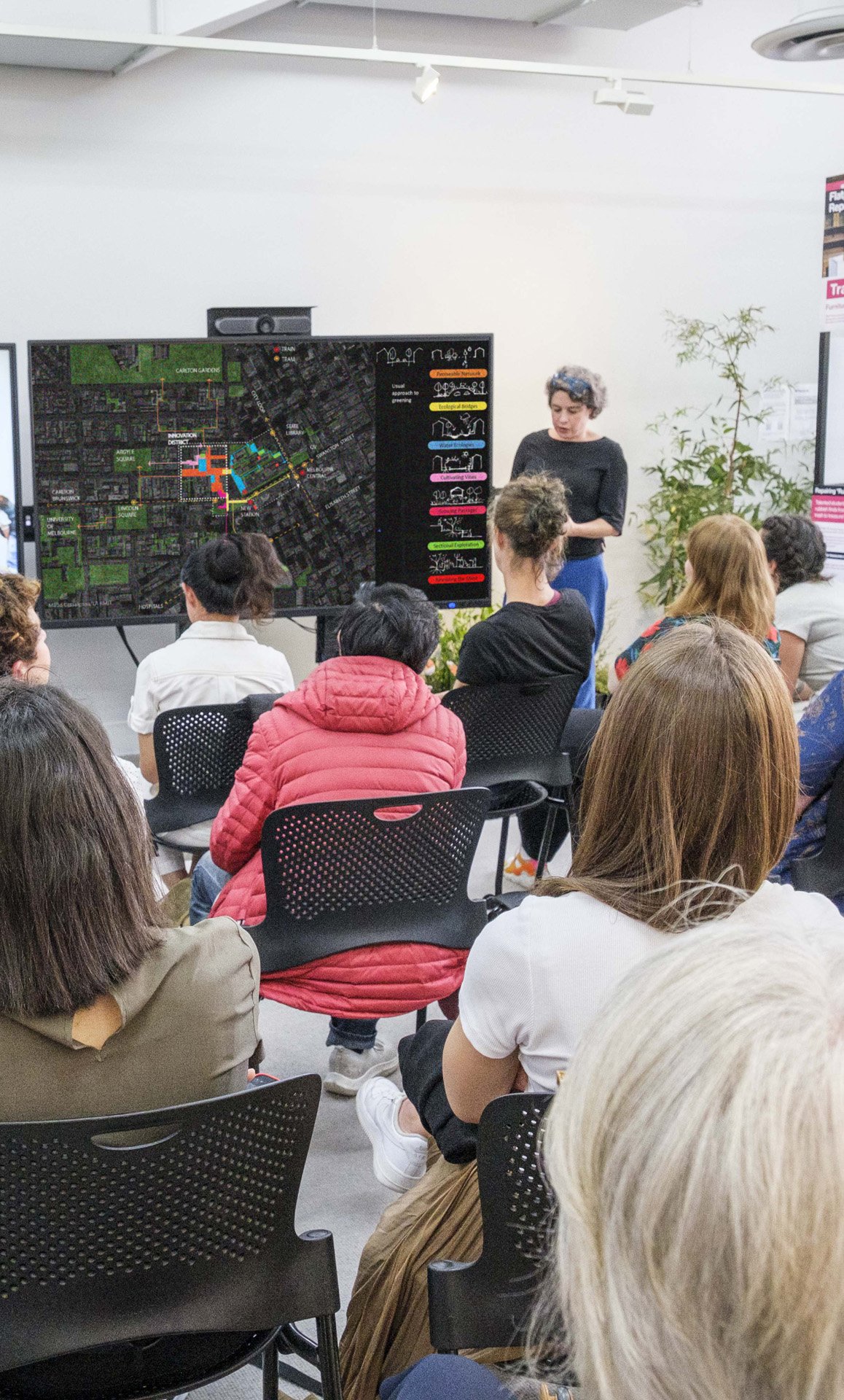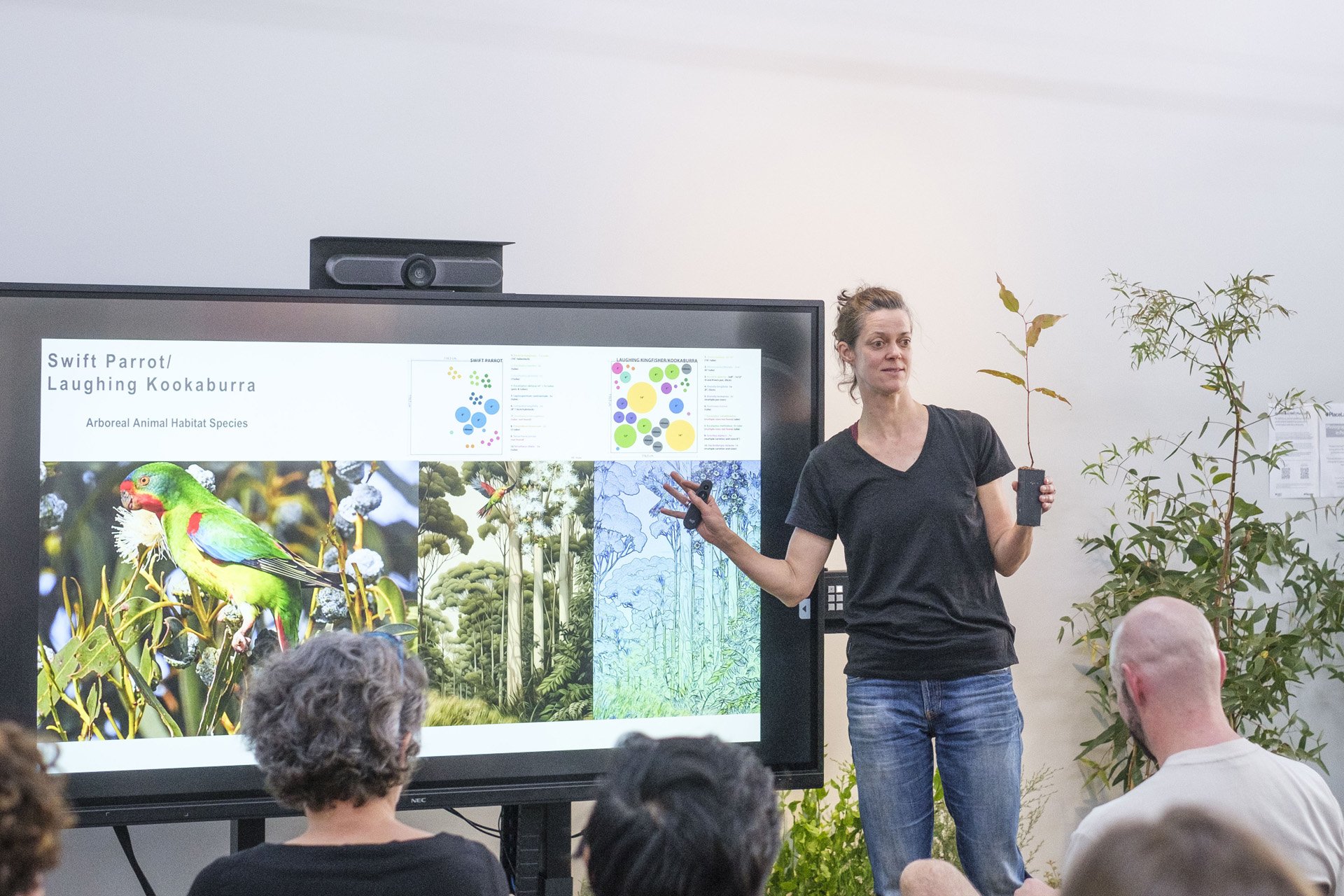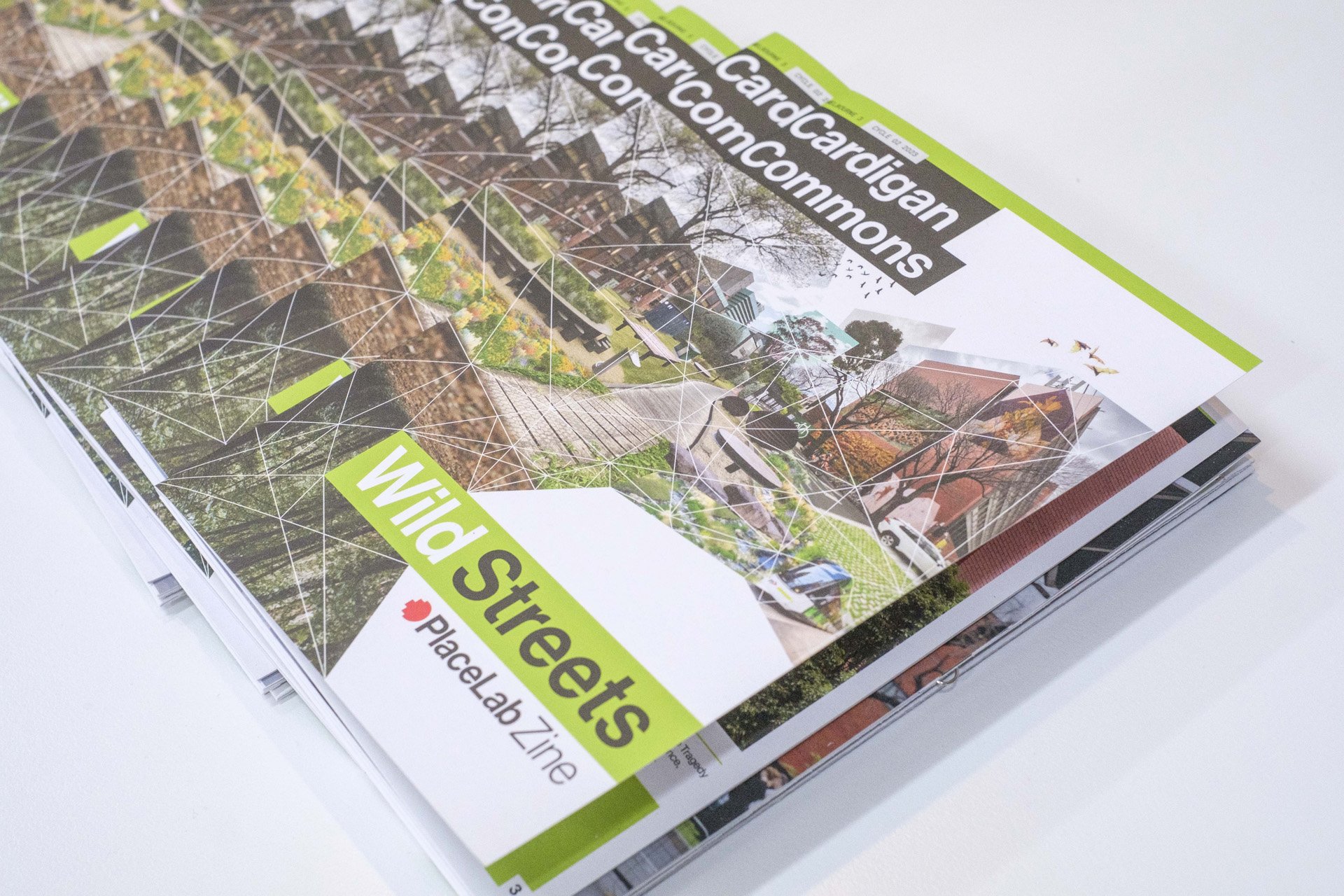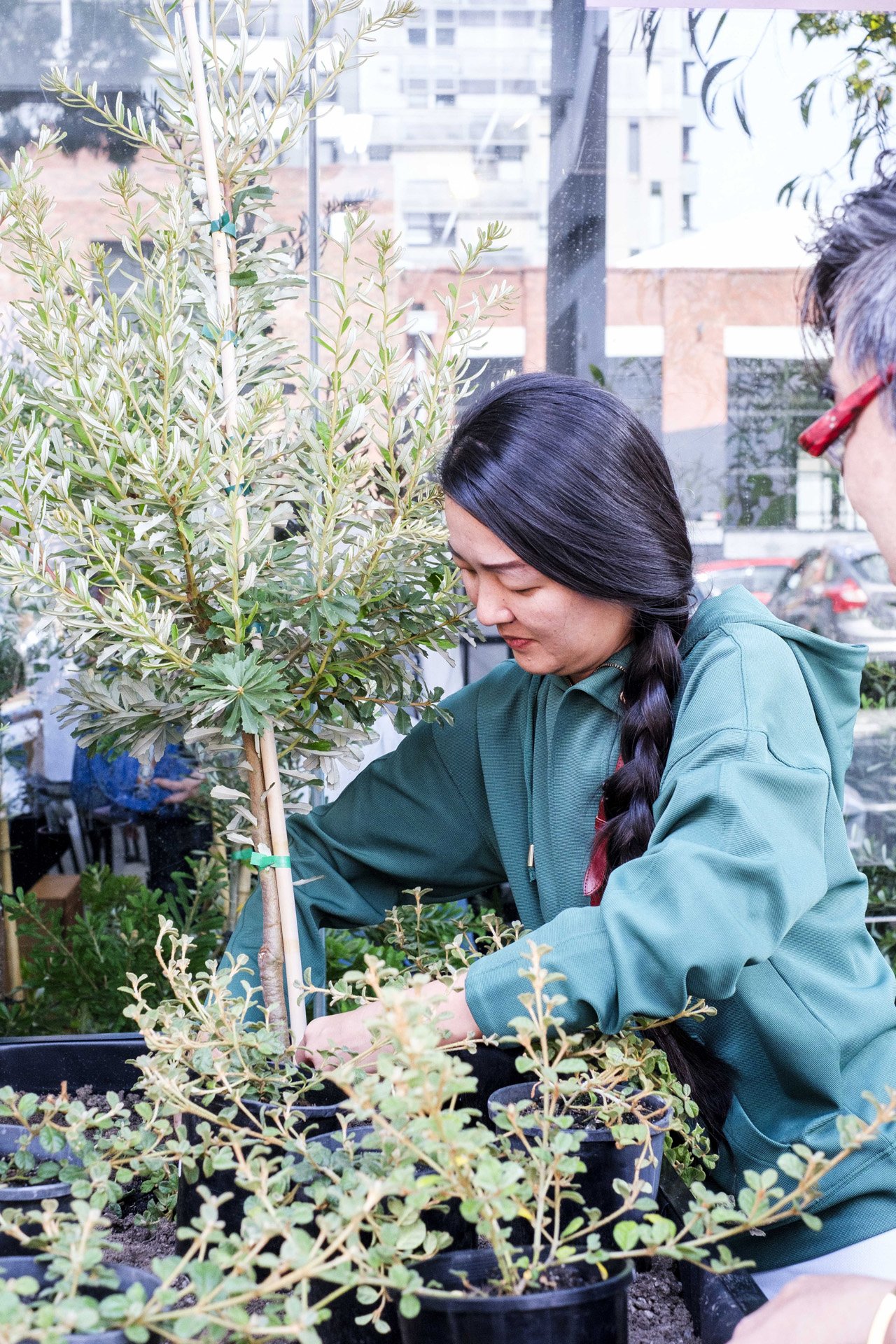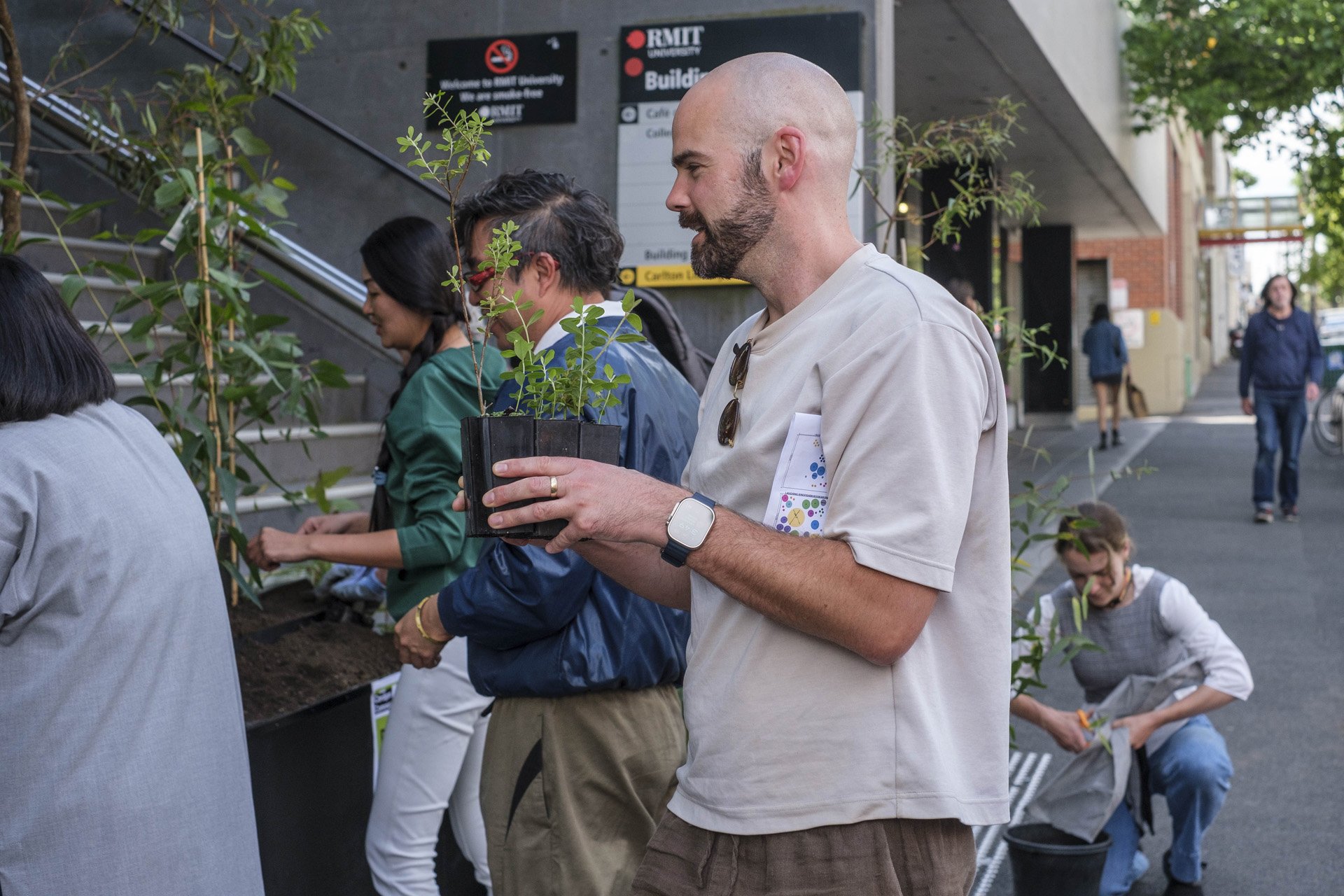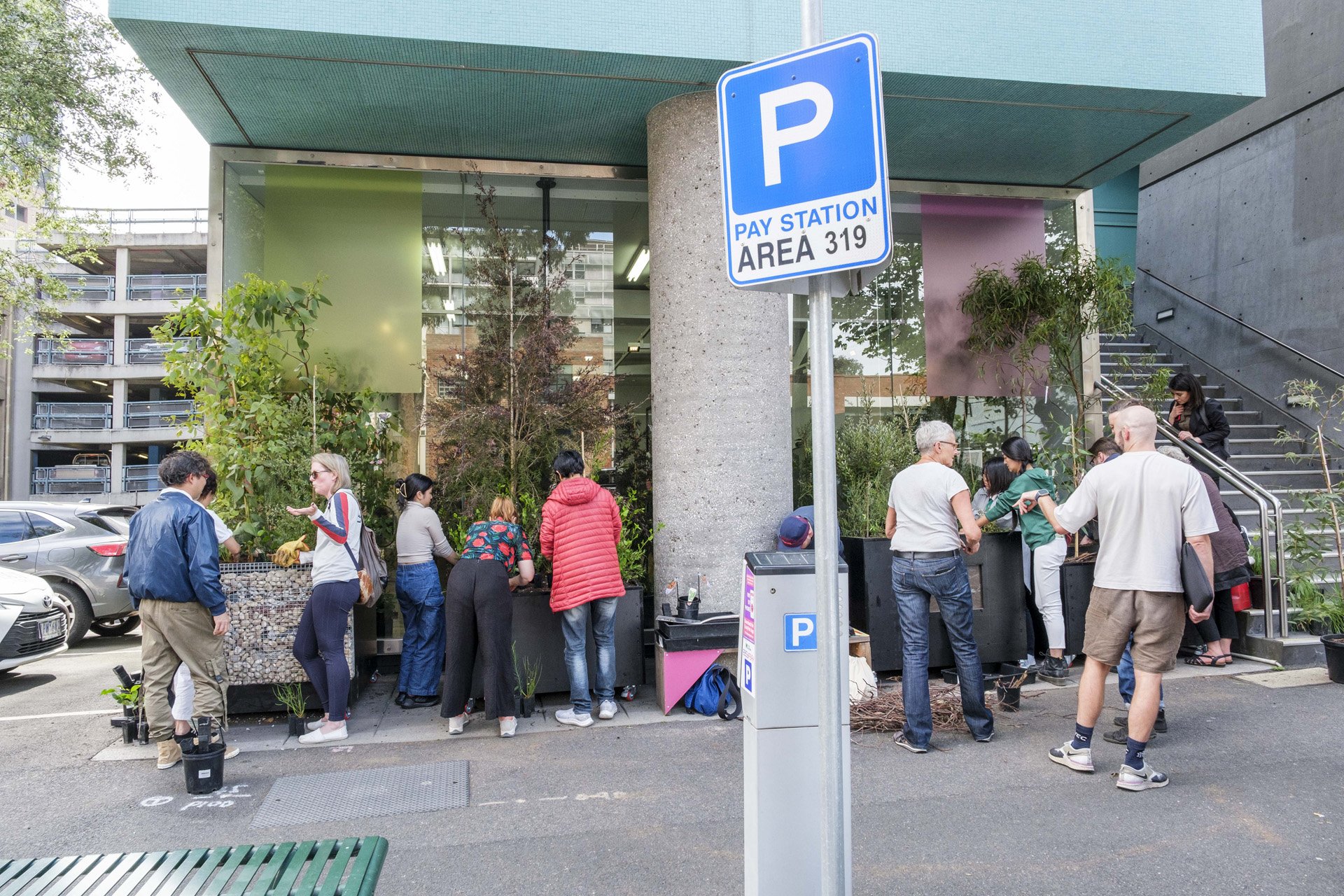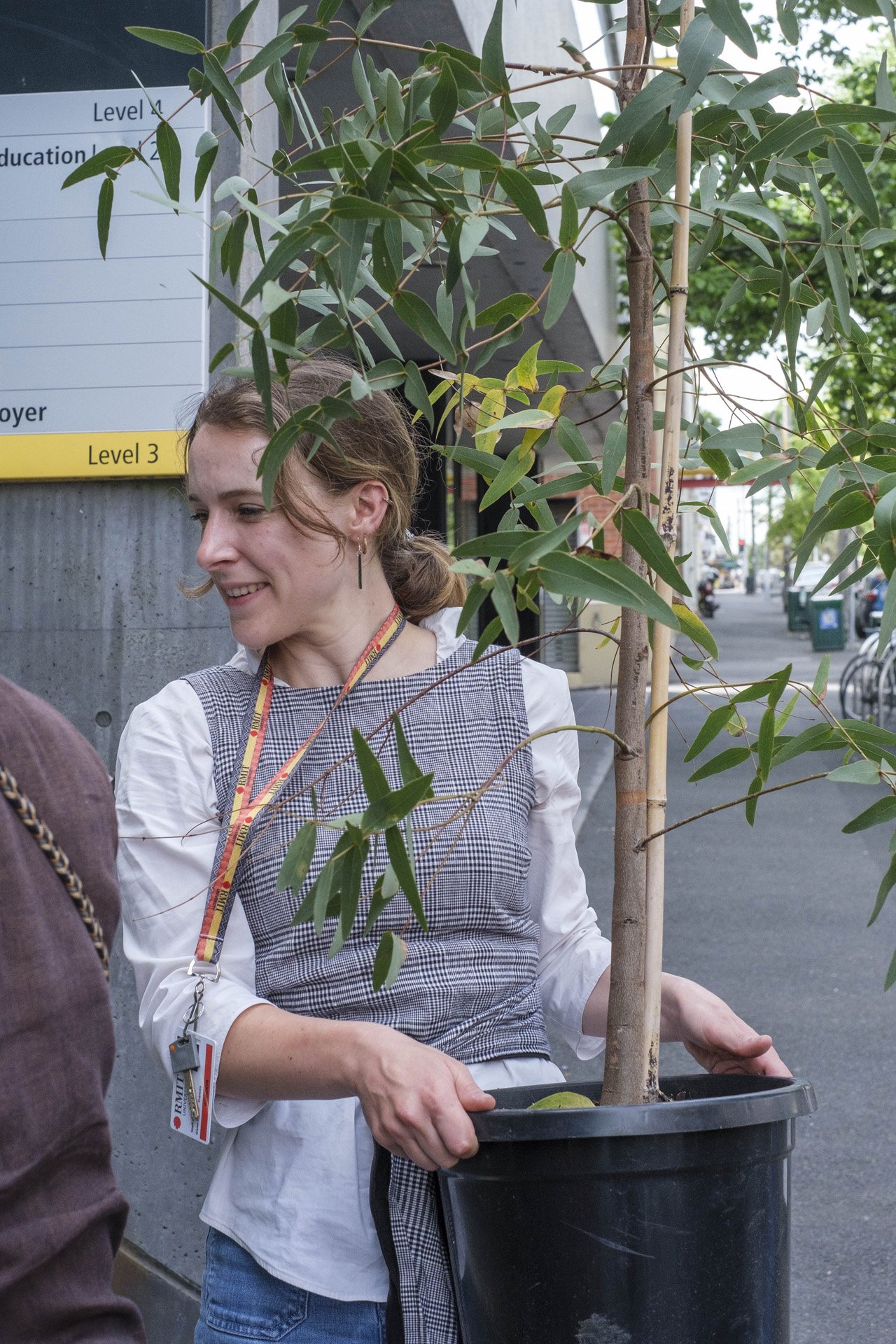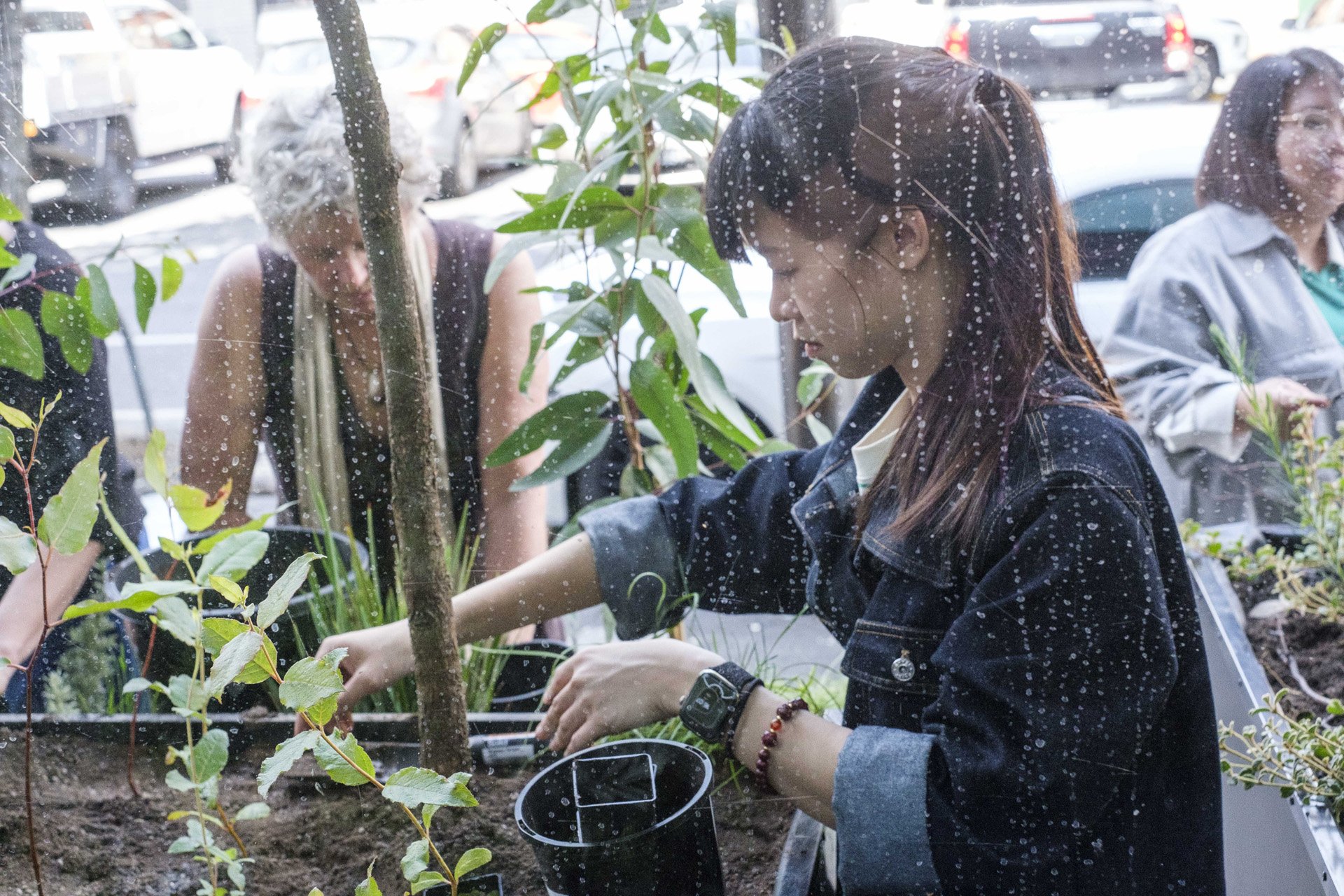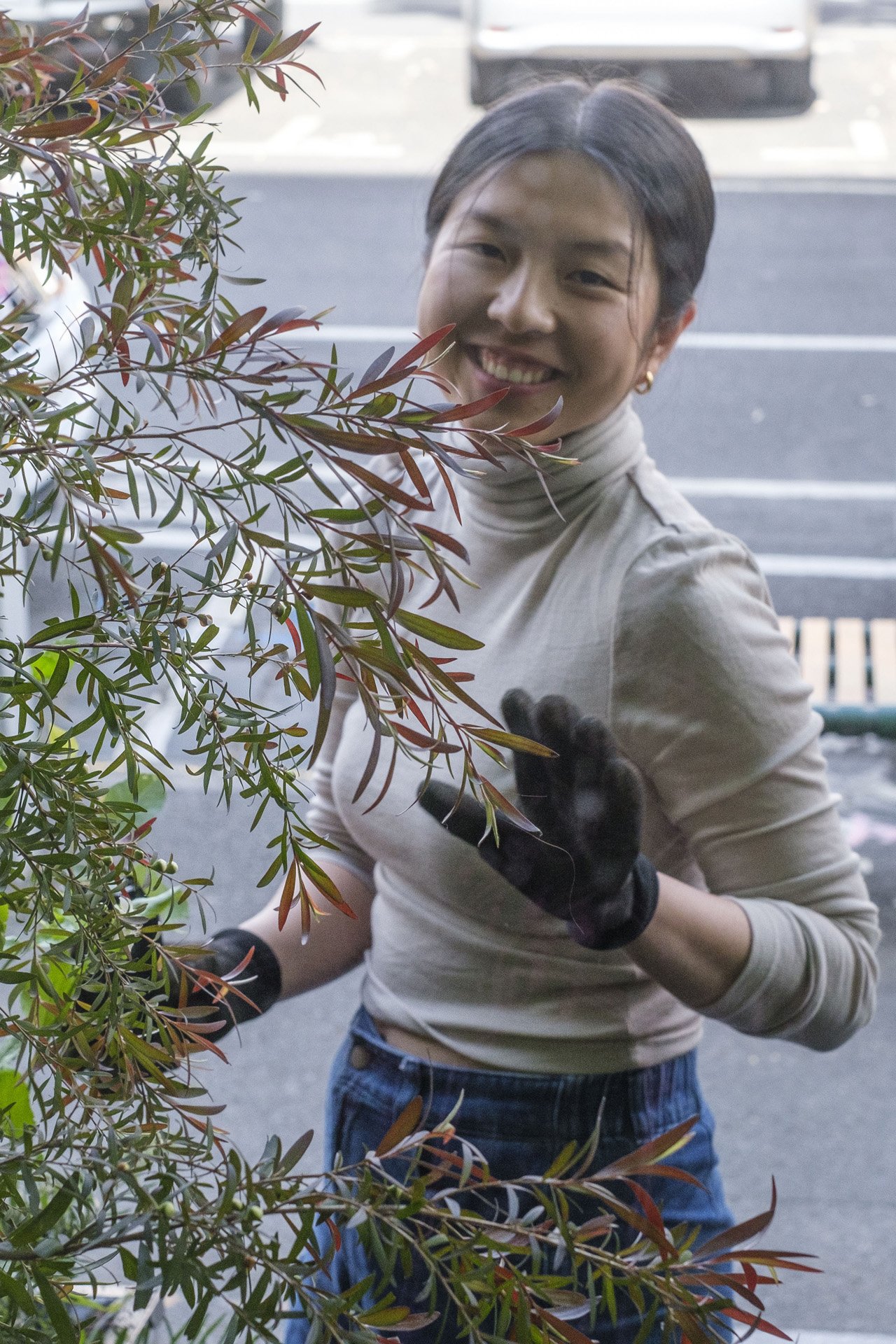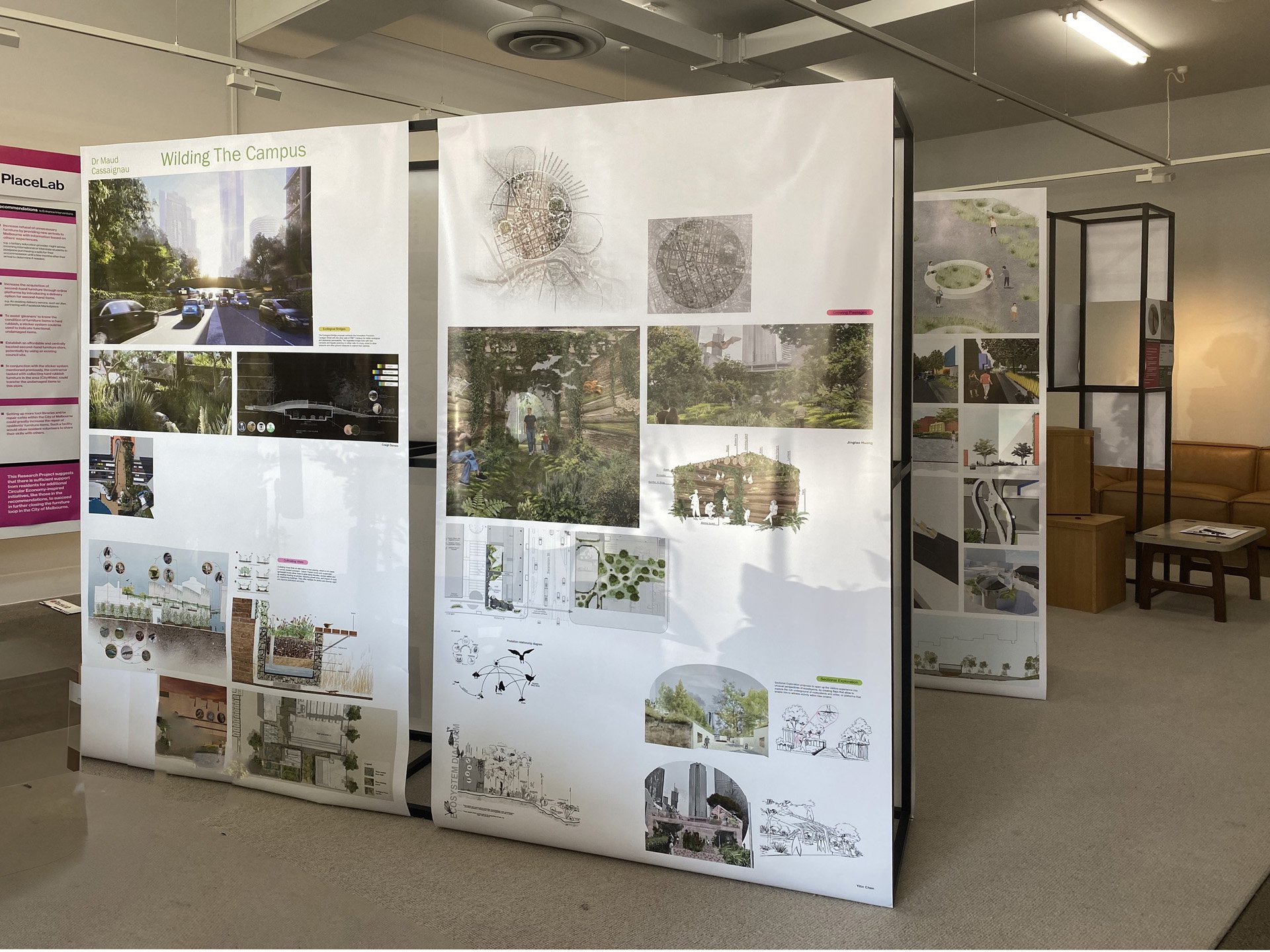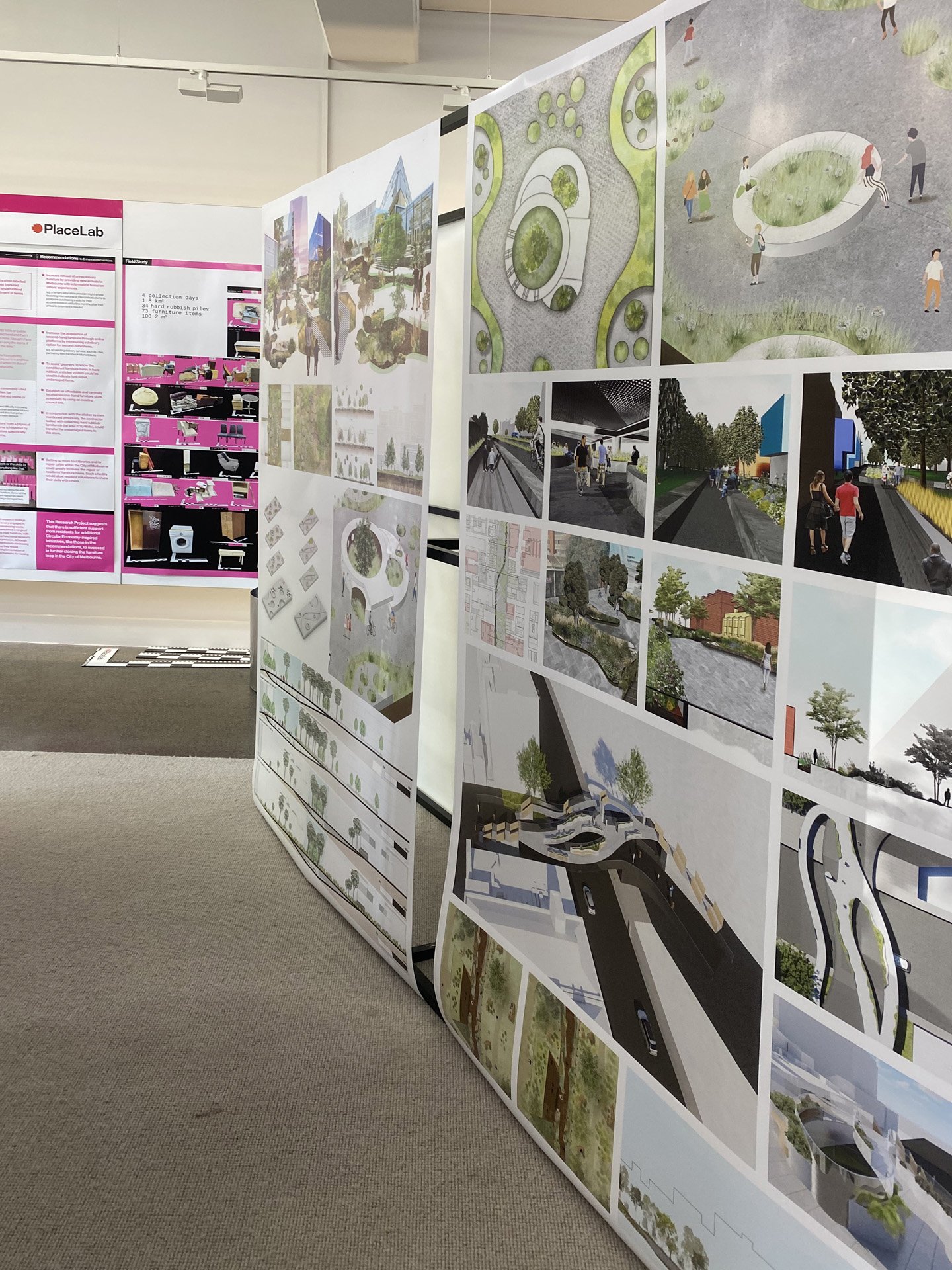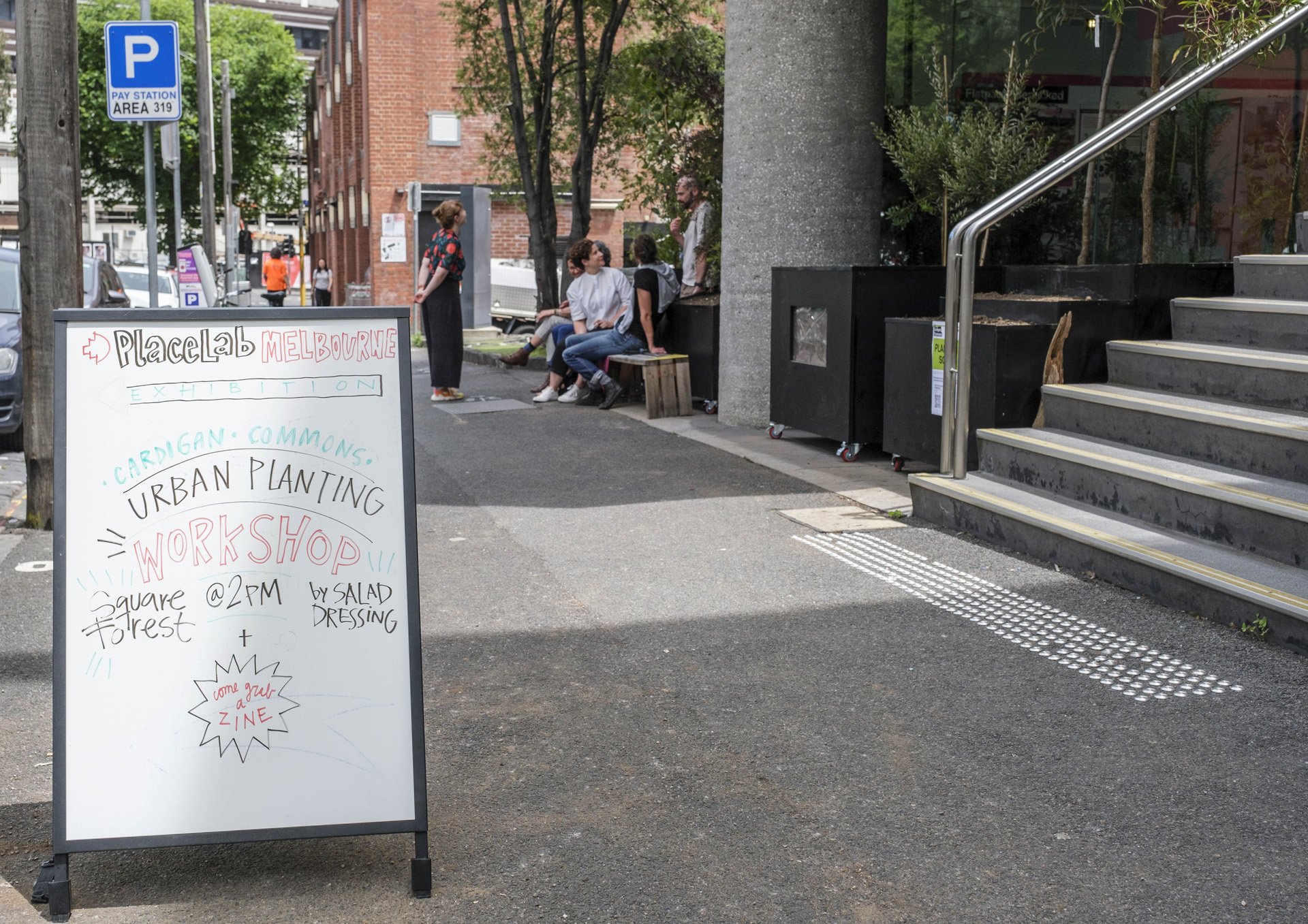WILD STREETS
Dr. Maud Cassaignau, Dr. Heike Rahmann and Dr. Brent Greene in partnership with in partnership with PlaceLab RMIT and Salad Dressing
WILD STREETS investigated a strategy of implementing full ecosystems of native plants, animals, soil life.
It is seen as alternative to single-species urban greening strategies, often focussing on trees used currently to address concurrent crises of climate change and biodiversity loss. Because trees and vegetation do not thrive in isolation, such planting often stalls or demands high maintenance.
WILD STREETS investigates how different urban spaces lend themselves for different ecosystem due to their spatial configuration and microclimates. In two studios by M. Cassaignau, B.Greene and G.Fang, we developed urban strategies for the innovation precinct’s spaces around Cardigan Street. We tested design approaches for ecosystems framed around endemic animal species. These have been exhibited at Placelab on RMIT campus and presented to the community in events. Community engagements facilitated through the PlaceLab Team have supported out design research approaches.
We have also tested in 5 prototypical landscapes on campus, together with Salad dressing landscape architects from Singapore. We invited the community to participate in the planting of those prototypical landscape modules. One ecosystem is designed around the needs of bandicoots (endemic mammals), one for kookaburras (bird), one for skinks (reptilian), one for butterflies/ caterpillars (insect) and one in O’Grady place combines the 4 endemic animal habitats.
Our aim is to assess community response to native ecosystems, animal activity and ecosystem development. Simultaneously the project also aims to test, how multi-species ecosystems may be more robust in the long-term due to higher system elasticity and resilience. The project takes a more-than human approach, contrasting with notions of blue green infrastructure as human commodity. It proposes a combined method of re-imagining and designing city spaces from urban to 1:1 scale, through the lens of urban and contextual ecosystems.
This is a collaboration between RMIT Landscape architecture (Maud Cassaignau, Heike Rahmann, Brent Greene), Salad Dressing Landscape Architects Singapore and RMIT Place Lab. The activity has been supported through RMIT PlaceLab funding, as part of the initiative’s ‘Cardigan Commons’ Research Project. A great thank you to Kiri Delly, Brock Hogan, Paloma Bugedo, Frances Gordon, Luke Gebert and Cherese Sonkkila.

